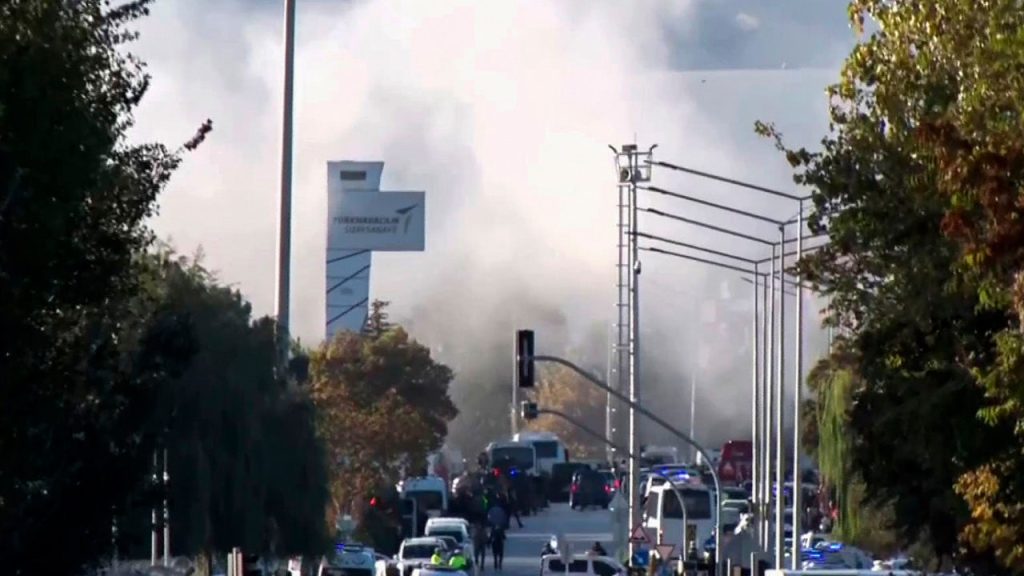NATO member Turkey conducted a second day of aerial attacks on Kurdish militant positions in Iraq and Syria following a terrorist attack on a defense agency that killed five people. The National Intelligence Organization targeted strategic locations used by the Kurdistan Workers’ Party (PKK) and Syrian Kurdish militia. According to General Commander Mazloum Abdi of the Syrian Democratic Forces (SDF), the Turkish attacks have been indiscriminate and have targeted civilian areas and health centers, resulting in 12 deaths and 25 others wounded. The SDF, long-standing allies with the U.S. in the fight against ISIS, condemned the attacks as war crimes and called for dialogue while affirming readiness to defend themselves.
The SDF reported that Turkish warplanes and UAVs targeted populated areas, bakeries, power stations, oil facilities, and checkpoints. Civilians, including children, were among the casualties from the Turkish aerial bombardment, sparking concerns about civilian deaths. While some areas in Iraq were hit, it was unclear if there were any casualties. The mountainous area targeted had largely been depopulated due to previous Turkish military operations. The State Department had not responded to requests for comment on the attacks and civilian deaths. Kurdish groups in Syria have been vocal about the impact of the attacks on civilians and infrastructure, calling for international condemnation and action.
Turkish Defense Minister Yasar Guler claimed that 47 alleged PKK targets were destroyed in the airstrikes, with 29 in Iraq and 18 in Syria targeted. Guler reiterated Turkish commitment to eliminating terrorist threats in the region. The airstrikes were launched in response to a terrorist attack on a defense company in Ankara carried out by two suspected Kurdish assailants who killed five people and injured 22 before being killed themselves. The PKK has not claimed credit for the attack. The U.S. Embassy in Turkey condemned the terrorist attack, but the Turkish Embassy in Washington, D.C., did not provide immediate comment in response to the events. The escalating tensions and violence in the region have raised concerns about the impact on civilians and the stability of the area.
The attacks on Kurdish militant positions in Iraq and Syria have raised international concerns about the escalating conflict between Turkey and Kurdish groups. The indiscriminate airstrikes have resulted in civilian casualties and damage to essential infrastructure, leading to accusations of war crimes. The SDF, as allies of the U.S. in the fight against ISIS, have called for dialogue while reaffirming their readiness to defend their people and land. The Turkish government has vowed to continue its struggle against terrorist threats in the region, highlighting the complexities and challenges in the ongoing conflict.
The ongoing conflict between Turkey and Kurdish groups in the region has led to further violence and civilian casualties, as evidenced by the recent airstrikes on alleged PKK targets. The attacks, coupled with the terrorist incident in Ankara, have highlighted the volatile situation in the region and the risk to civilians caught in the crossfire. The lack of clear communication and dialogue between the parties involved has added to the uncertainty and instability in the area. International responses to the conflict have been mixed, with calls for de-escalation and protection of civilians at the forefront of concerns. The complex nature of the conflict and the competing interests of the parties involved make finding a resolution challenging and necessitate a comprehensive approach to address the root causes of the tensions.













